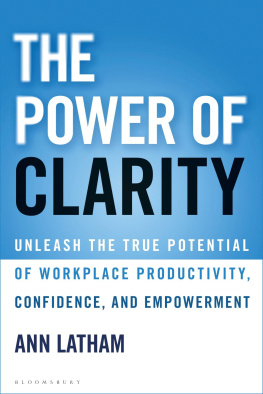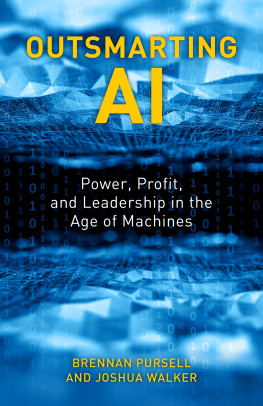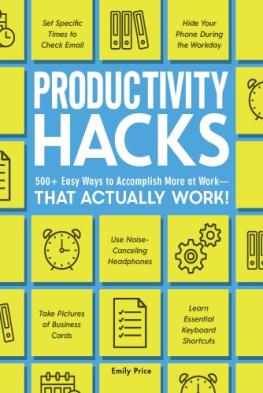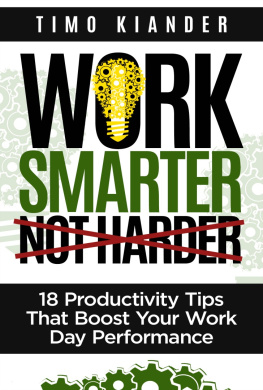Contents
Guide
Page List
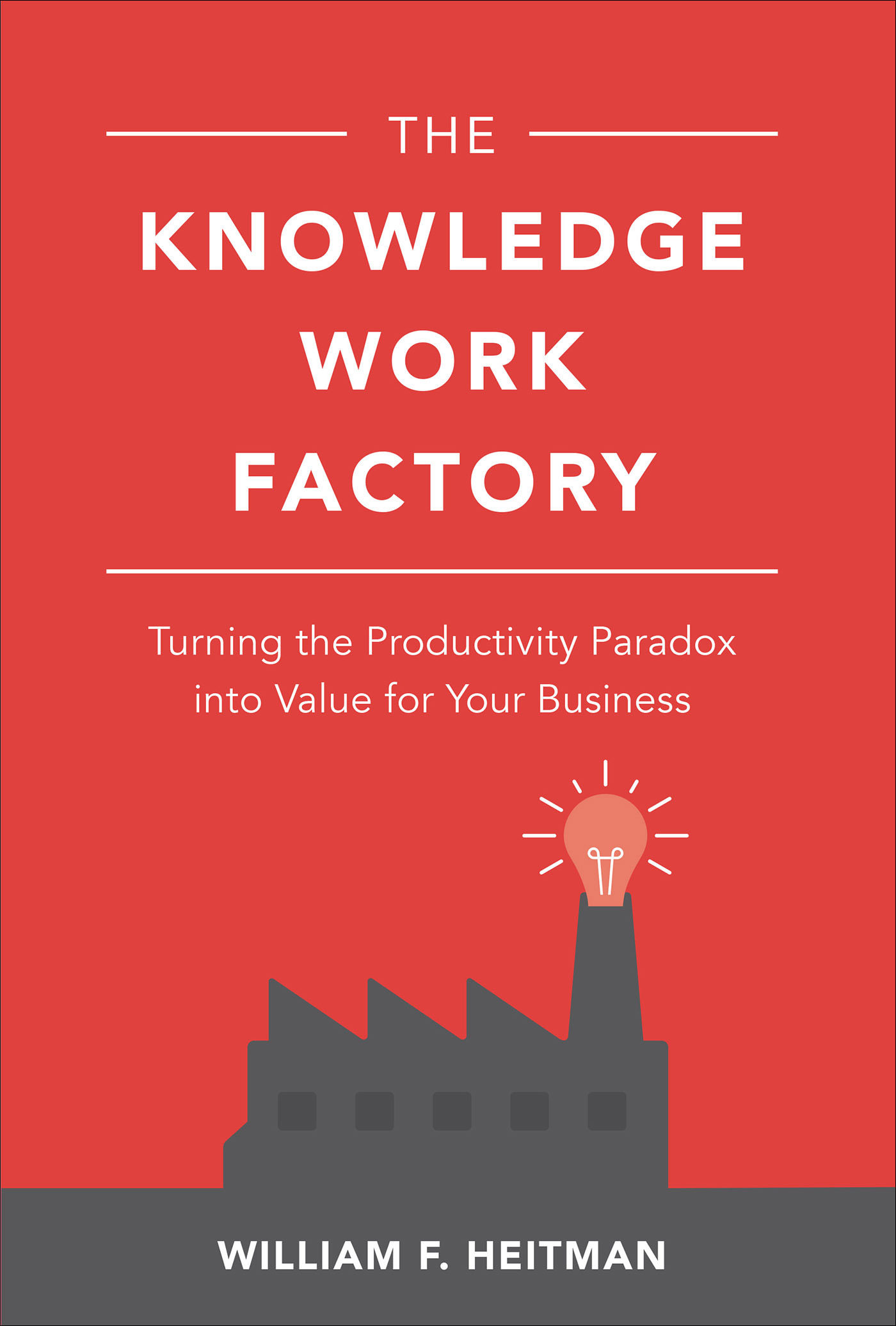

Copyright 2019 by William F. Heitman. All rights reserved. Except as permitted under the United States Copyright Act of 1976, no part of this publication may be reproduced or distributed in any form or by any means, or stored in a database or retrieval system, without the prior written permission of the publisher.
ISBN: 978-1-26-012216-9
MHID: 1-26-012216-6
The material in this eBook also appears in the print version of this title: ISBN: 978-1-26-012215-2, MHID: 1-26-012215-8.
eBook conversion by codeMantra
Version 1.0
All trademarks are trademarks of their respective owners. Rather than put a trademark symbol after every occurrence of a trademarked name, we use names in an editorial fashion only, and to the benefit of the trademark owner, with no intention of infringement of the trademark. Where such designations appear in this book, they have been printed with initial caps.
McGraw-Hill Education eBooks are available at special quantity discounts to use as premiums and sales promotions or for use in corporate training programs. To contact a representative, please visit the Contact Us page at www.mhprofessional.com.
TERMS OF USE
This is a copyrighted work and McGraw-Hill Education and its licensors reserve all rights in and to the work. Use of this work is subject to these terms. Except as permitted under the Copyright Act of 1976 and the right to store and retrieve one copy of the work, you may not decompile, disassemble, reverse engineer, reproduce, modify, create derivative works based upon, transmit, distribute, disseminate, sell, publish or sublicense the work or any part of it without McGraw-Hill Educations prior consent. You may use the work for your own noncommercial and personal use; any other use of the work is strictly prohibited. Your right to use the work may be terminated if you fail to comply with these terms.
THE WORK IS PROVIDED AS IS. McGRAW-HILL EDUCATION AND ITS LICENSORS MAKE NO GUARANTEES OR WARRANTIES AS TO THE ACCURACY, ADEQUACY OR COMPLETENESS OF OR RESULTS TO BE OBTAINED FROM USING THE WORK, INCLUDING ANY INFORMATION THAT CAN BE ACCESSED THROUGH THE WORK VIA HYPERLINK OR OTHERWISE, AND EXPRESSLY DISCLAIM ANY WARRANTY, EXPRESS OR IMPLIED, INCLUDING BUT NOT LIMITED TO IMPLIED WARRANTIES OF MERCHANTABILITY OR FITNESS FOR A PARTICULAR PURPOSE. McGraw-Hill Education and its licensors do not warrant or guarantee that the functions contained in the work will meet your requirements or that its operation will be uninterrupted or error free. Neither McGraw-Hill Education nor its licensors shall be liable to you or anyone else for any inaccuracy, error or omission, regardless of cause, in the work or for any damages resulting therefrom. McGraw-Hill Education has no responsibility for the content of any information accessed through the work. Under no circumstances shall McGraw-Hill Education and/or its licensors be liable for any indirect, incidental, special, punitive, consequential or similar damages that result from the use of or inability to use the work, even if any of them has been advised of the possibility of such damages. This limitation of liability shall apply to any claim or cause whatsoever whether such claim or cause arises in contract, tort or otherwise.
CONTENTS
INTRODUCTION
Just Another Day at the Office
CHAPTER 1
Where Is White-Collar Waste Hiding? In Plain Sight!
What do a financial-services company and a tire manufacturer have in common?
Why do 20 percent of earnings go missingand unnoticed?
Test your knowledge: three spot the waste stories.
Introducing the concept of virtuous waste.
CHAPTER 2
Did You Notice That Your Most Valuable Assets Have Shifted?
Buried in Babylon: the difference between tangible and intangible assets.
Competencies: mundane work activities that are worth a fortune.
Why your greatest assets remain unrecognized and underproductive.
How unique is your business? Understanding the anti-standardization bias.
CHAPTER 3
How We Got Here: The Long Journey to Myopia
Thirty thousand years of productivity improvementsin just five minutes.
Should technology drive work activitiesor the other way around?
Why has knowledge work failed to improve when other work has wildly succeeded?
The Industrial Revolution, big rocks theory, and the productivity paradox.
CHAPTER 4
Findingand FixingYour Businesss Biggest Blind Spots
Perceptive biases that trick your brain into giving you incorrect information.
Logic biases, flawed rationalizations, and profit-robbing false trade-offs.
The principle of least effort: not as simple as it sounds.
Powering past your blind spots: techniques for seeing the unseen.
CHAPTER 5
Transforming Your Business into a Knowledge Work Factory
The immutable elements of industrialand knowledgework.
Three perceptual errors that make the brain ignore these elements.
The better mousetrap dogma: market-based suppression of business innovation.
Touring the anthill of knowledge work operations.
CHAPTER 6
Whats the Capacity of Your Knowledge Work Factory?
The rise and (mostly) fall of org charts: an unmatched masterpiece from.
How knowledge labor-cost data go missingand where theyre hiding.
Why knowledge workers believe theyre exempt from productivity management.
Five lessons from a century of failed organizational theories.
CHAPTER 7
Recognizing the Hidden Products Your Knowledge Workforce Builds
Taking inventory: the overlooked products your knowledge workers create every day.
How false complexity erodes productivityand impedes standardization.
Lessons from the factory floor: adapting product-based management to knowledge work.
A finance department case study: best intentions, worst outcomes.
CHAPTER 8
Building Your Own Knowledge Work Factory
Beginning with basics: capacity and work products.
The 1914 productivity death match: Frederick Taylor vs. Henry Ford.
Separating the management of work from the performance of work.
Reducing variance to boost productivity up to 30 percentwithout technology.
CHAPTER 9
Optimizing Your Knowledge Work Assembly Lines
The five maybes: a simple path to business-process improvement.
How to outachieve the overachievers to reach better-than-best-practice performance.
Why todays knowledge work is tragically under-automated.
Documenting and managing predictable patterns in business processes.
CHAPTER 10
Analyzing and Simplifying Knowledge Work Activities
Overcoming the three challenges to activity-level knowledge work improvement.
The periodic table of knowledge work activities.
Which work activities are unique? Shattering a longstanding misperception.
Tales of terror: real-world examples of hidden waste (with happy endings).
CHAPTER 11
Turbocharging Your Knowledge Work Factory
Doubling and redoubling productivity, one wrench-turn at a time.
A spreadsheet/robot smackdown.
The Activity Cube: reconciling four views of operations.
Vendor hype versus reality: how much can you actually automate?
CHAPTER 12
Managing Industrialization
Counterintuitive strategy: how to win by playing not to lose.
Crossing the void: three strategic milestones.
Building your knowledge work factory: a two-phased approach.



